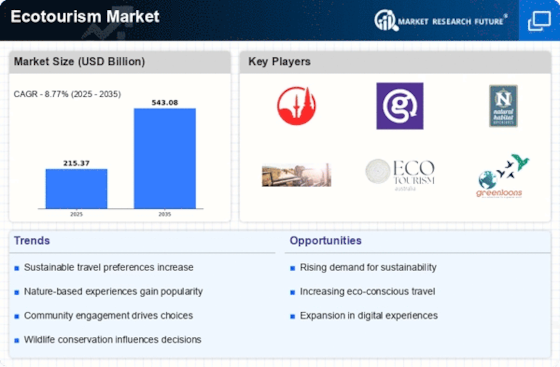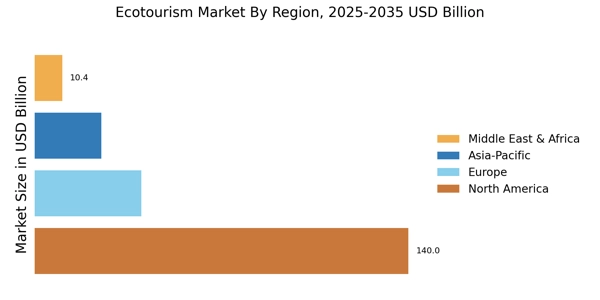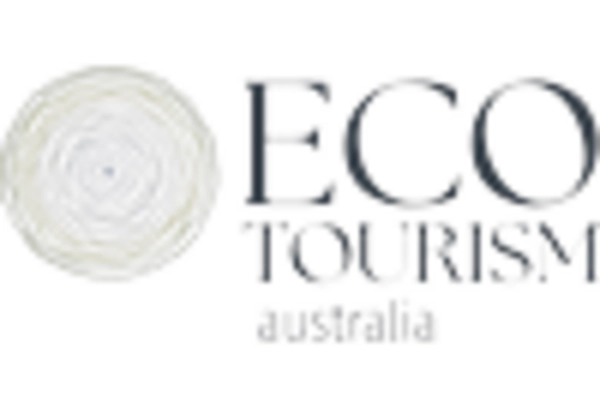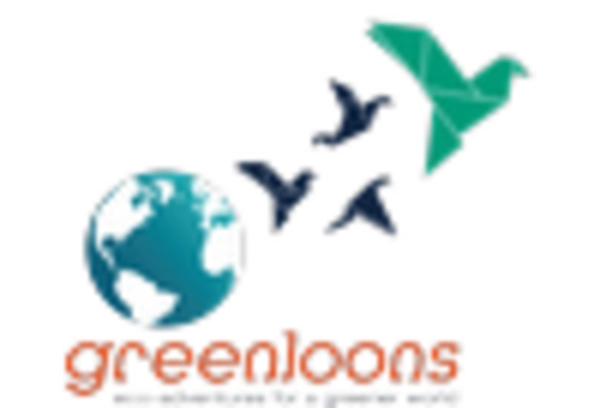Health and Wellness Trends
The rising focus on health and wellness is significantly influencing the ecotourism Market. Travelers are increasingly seeking experiences that promote physical and mental well-being, often turning to nature-based activities such as hiking, yoga retreats, and wellness resorts. This trend aligns with the principles of ecotourism, which emphasize harmony with nature and personal rejuvenation. Data indicates that wellness tourism is projected to grow at a rate of 7.5% annually, suggesting a strong correlation with ecotourism. As health-conscious consumers prioritize holistic experiences, the Ecotourism Market stands to gain from this burgeoning interest in wellness-oriented travel.
Cultural Heritage Preservation
The preservation of cultural heritage is emerging as a significant driver within the Ecotourism Market. Travelers increasingly seek authentic experiences that connect them with local cultures and traditions. This trend is fostering a greater appreciation for indigenous practices and local customs, which are often integral to ecotourism offerings. By promoting cultural heritage, ecotourism not only supports local communities but also enhances the overall travel experience. Data suggests that destinations emphasizing cultural experiences see a 30% increase in visitor engagement, indicating that the Ecotourism Market can thrive by integrating cultural preservation into its core offerings.
Increased Environmental Awareness
The growing consciousness regarding environmental issues appears to be a pivotal driver for the Ecotourism Market. As individuals become more informed about climate change, biodiversity loss, and pollution, there is a noticeable shift towards sustainable travel options. This trend is reflected in the rising demand for eco-friendly accommodations and activities that minimize ecological footprints. According to recent data, approximately 70% of travelers express a preference for sustainable tourism options, indicating a robust market potential. The Ecotourism Market is thus likely to benefit from this heightened awareness, as consumers actively seek experiences that align with their values of conservation and sustainability.
Technological Advancements in Travel
Technological advancements are reshaping the Ecotourism Market by enhancing the way travelers plan and experience their journeys. Innovations such as mobile applications for eco-friendly travel options, virtual reality experiences of natural sites, and online platforms for sustainable accommodations are becoming increasingly prevalent. These technologies not only facilitate informed decision-making but also promote eco-conscious choices among travelers. As more individuals utilize technology to seek out sustainable travel options, the Ecotourism Market is likely to see a surge in demand for tech-driven solutions that align with environmental values.
Government Support and Policy Frameworks
Government initiatives and supportive policy frameworks are increasingly shaping the landscape of the Ecotourism Market. Many countries are recognizing the economic potential of ecotourism and are implementing policies that promote sustainable tourism practices. For instance, tax incentives for eco-friendly businesses and funding for conservation projects are becoming more common. This support not only encourages investment in ecotourism ventures but also enhances the overall appeal of destinations that prioritize environmental stewardship. As a result, the Ecotourism Market is likely to experience growth driven by favorable regulatory environments that facilitate sustainable tourism development.

















